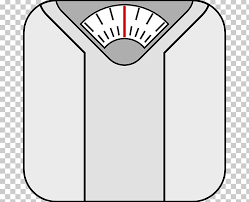It’s interesting to see how different news organizations write the title of this research. I think this one is the most fair. I’ve also seen “IF no better than counting calories” which is technically true but also paints IF in a negative light, since the research seems to show either way can be effective.
I did find that IF worked really well for me when I tried it back in 2018, but when I went off it I gained weight back very quickly. I’m currently just doing CR and counting my macros with the macrofactor app and it’s also working well. The good thing about previously doing IF is that I’m no longer super freaked out/it’s not the end of the world if I have to skip a meal for some reason.
Started IF a few wees ago. Doing 5 days on, 2 off.
Doing it mostly for weightloss but also for the various probable health signals.
What I’ve found is its pretty easy and when it does come time to eat, I’m also not overeating and get full faster.
This is definitely easier to keep up than calorie counting.
I definitely have slimmed down a little in the short time I’ve been doing it. I haven’t weighed myself.
I do also work out 3x a week via hour-long rowing sessions, but that’s not new.
No idea why I posted this beyond that the OP caught my attention due to me starting IF recently :D
The photo caption currently says, “New research finds that people who try time-restricted eating can keep it up longer than people who count calories,” which I don’t see in the article as being attributed to this research.
In fact, the study conclusion is: Time-restricted eating is more effective in producing weight loss when compared with control but not more effective than CR [calorie restriction] in a racially diverse population.
I see people are chiming in with their own experiences with IF, so here’s mine: I’ve been doing IF for about 4 months myself and it’s done wonders for me and positively changed my lifestyle. I lost weight much easier than ever before, but it’s hard to tell how much of that is because of IF itself and how much is due to the dietary changes I implemented at the same time (zero processed food, significantly reduced sugar intake, etc…).
However, the biggest benefit I got from doing full IF is that it’s become much easier for me to go without food for longer periods of time. I noticed this particularly on my most recent business trip, where I’d planned to travel for 6 hours starting at 6 AM with a rather hectic itinerary and several changeovers, so there wouldn’t have been enough time to stop for snacks. When I arrived at my destination, I realised that I’d woken up, ate nothing, and then spent 6 hours on the road without even having thought of food.
I also noticed that it’s become possible for me to switch from an eating-for-pleasure to an eating-for-sustenance mode without having to struggle with cravings and trying to suppress them.
My entire plan was as follows:
First I spent 6 weeks avoiding all sugar, just to reset my tolerance, so to speak. This was by far the hardest part. At the same time I got myself a so-called “multi-cooker”, which is basically an air fryer and pressure cooker combo, because it seemed to me that it would make cooking and preparing large quantities of healthy food easier (that did prove to be the case).
At the same time, I started IF by allowing myself to eat only between 9 AM and 1 PM, unless I don’t have access to food during that window (for example because I’m travelling and didn’t have time to prepare food for the trip). Initially, I still counted calories when I ate even during that window, but then I noticed it was becoming effortless for me to not overeat. As long as I didn’t introduce unhealthy food into the diet, calorie counting was no longer needed. In fact, I swung so much the other way at one point that I had to make sure I was getting enough food into my stomach during that four-hour window. I only ate one or two meals at most a day.
I was already working out regularly before IF, but it wasn’t enough to maintain a healthy weight and make me feel energetic overall. I realised that after making changes to my diet.
After a while of doing IF, I started relaxing the rules a bit, especially with regards to what I’m not allowed to eat. However, I made sure to measure waist circumference and overall weight at least once a week and to take corrective measures as needed. I found that I’m able to have a chocolatey treat once or even twice a week, but still maintain a healthy weight. I still fast every day, but sometimes I extend the meal window to, say, 3 or 5 PM. I think that finding this balance after the initial period of culinary deprivation is an important final step in the journey, and is not to be underestimated. This was perhaps the second-hardest bit after quitting sugar abruptly (the withdrawal was real, albeit brief).
I can’t stop reading your comment with your username in mind lol
😂



